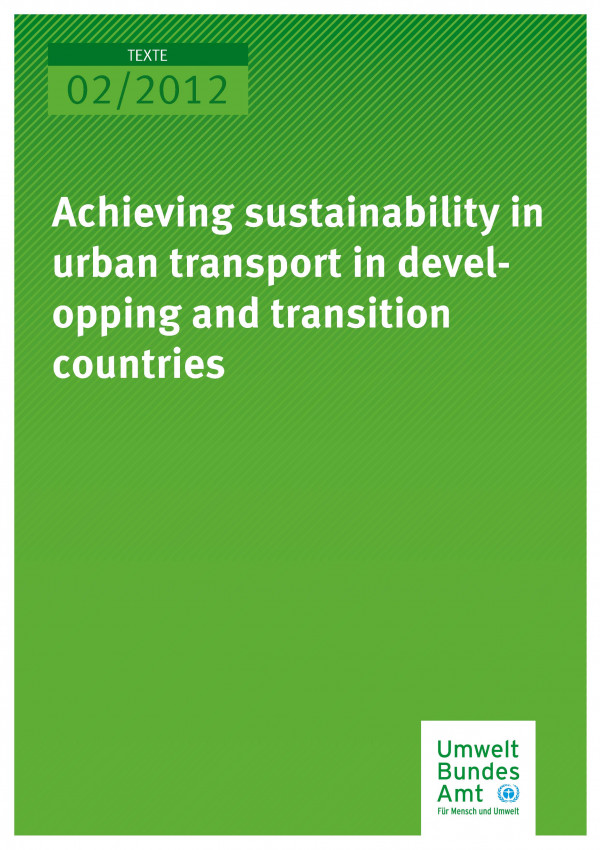Transport accounted for 23% of global CO2 emissions in 2007. It is expected that both the overall emissions and the demand for energy in transport will continue to rise in the next decades unless appropriate policy measures are introduced. While fossil fuels will become scarce over the next decades, mobility is one of the basic needs of people today and there is a reinforcing correlation between economic and social development on the one hand and mobility and accessibility on the other. There is a pressing need to improve the sustainability of transport in order to reduce its impact on climate change, better support economic growth, improve energy security and achieve the Millennium Development Goals (MDGs). Unsustainable transport can cause air pollution, noise, accidents and other negative sideeffects harming people and the environment. These effects are especially relevant in urban areas. Today about 50% of the world’s population of 6.9 billion people lives in cities.

Series
Texte | 02/2012
Number of pages
154
Year of publication
Author(s)
Prof. Dr. Michael Bräuninger, Dr. Sven Schulze, Leon Leschus, Dr. Jürgen Perschon, Christof Hertel, Simon Field, Nicole Foletta
Abstract
Language
English
Project No. (FKZ)
3710 96 148
Publisher
Umweltbundesamt
File size
5483 KB
Price
0,00 €
Print version
not available
rated as helpful
322

